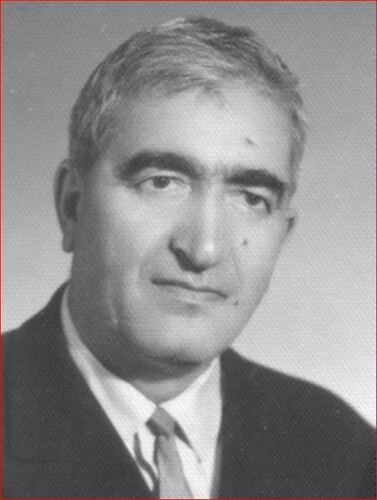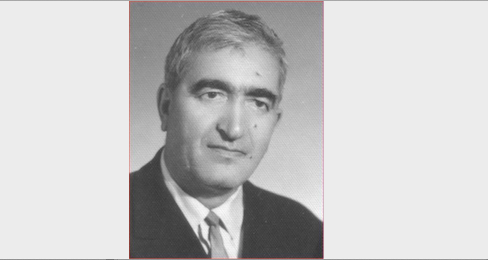Keyhan Mohammadi-Nejad
The Yezidi Kurds did not want to give up their ancient religion, rituals, and beliefs, so they were ordered to be killed by the Ottoman state. Kurds who migrated from the mountains of Shengal (Sinjar) because of the Ottoman genocide moved to the city of Dilok in North Kurdistan, from where they migrated to Qars and then to Armenia. Many Yezidis Kurds who fled to Armenia due to Ottoman oppression continued their cultural and civil activities there, and many prominent people appeared among them and even had a great influence on Kurdish awareness.
One of the Kurds who survived nomadism, poverty, and homelessness was Haji Jndi. Haji Jndi was a man who began his life in exile but became a great knowledgeable figure for his people.
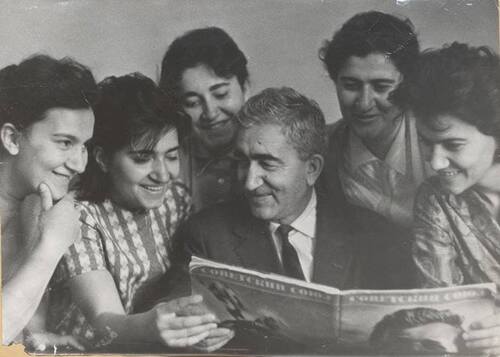
Haji Jndi was born in 1908 in the village of Amanchayir near Digor or Tekor in Qars, North part of Kurdistan, to a Yezidi family. He spent his childhood in the village of Amanchayir. It was around 1918 that the Ottomans began massacring the Yezidi Kurds and forced them to flee to the Soviet Union. There, Haji Jndi was left homeless and raised in an orphanage.
At that time, hundreds of Kurdish orphans were in orphanages; he completed his primary and secondary education there. There he trained very well, so that in 1929, he entered the teacher preparation course. On March 25, 1930, the newspaper Reya Taze began publication. Haji Jndi was also appointed to the Department of Culture and Literature in the same year. Haji Jndi and his wife, Ayneva Eivo, worked together on Radio Yerevan. Their voices were broadcast on the radio for the first time and called their listeners, “Dear listeners, listen to the radio in Kurdish, this is Radio Yerevan.” In 1930, Radio Yerevan was activated by the efforts of Haji Jndi and his wife. In 1930, Haji Jndi established a section for Kurdish writers in the Armenian Writers' Council and became its head.
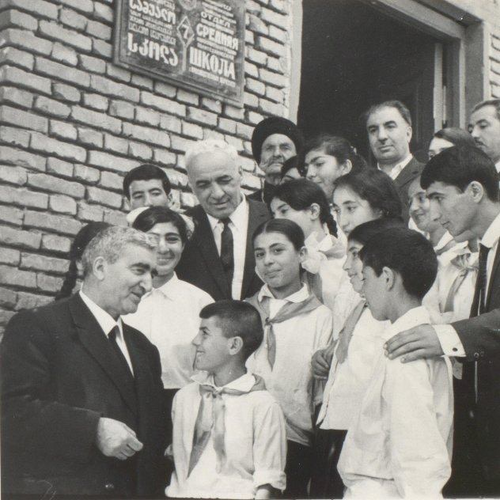
In January 1931, a school was opened in Yerevan with a one-year course. Haji Jndi became a Kurdish language teacher in the same year and until March 1938, he taught Kurdish to Kurdish children, and this is one of his great works. There, Haji Jndi prepared a Kurdish alphabet book and translated a mathematics book from Armenian into Kurdish for first grade students.
In 1933, by the decision of the Central Committee of the Communist Party of Armenia, Haji Jndi joined the Union of Writers of the Republic of Armenia and the former Soviet Union. In the fall of 1933, Haji Jndi graduated from university and was employed at the Armenian Institute of Cultural History in the Department of Folklore Studies. In 1934, he was elected as a member of the Yerevan Parliament.
Ayneva Eivo, Haji Jndi's wife says about him in her memoir, “Haji was a great fighter. There were days when he worked 14 or 16 hours and sometimes more because he loved to work for his people. Many people visited our house; we had visitors every day. There were people who came and asked for help and support, and Haji helped them. Sometimes Haji worked until late at night and wrote; sometimes he was busy until dawn, not even having time to eat, he said, "Put my food in my pocket, and I'll eat it later." Late in the evening he was tired and hungry and had his meal in his bag and I said, 'Work less.' He said, 'Do you want me to die?'
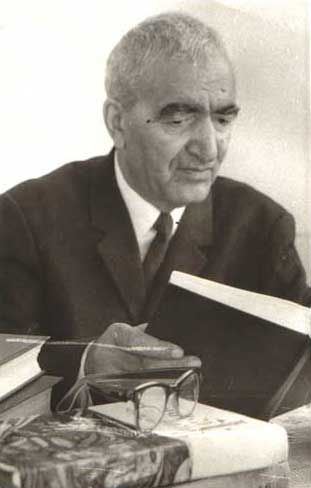
From 1930 to 1968, Haji Jndi was in charge of the Kurdish writers' department; in 1933, he was elected a member of the Preparatory Committee of the Armenian Writers' Union, and in 1934 and 1968, he became president of the Armenian Writers' Union.
In 1936, he published "Zargotina Kurmancan" as a large book entitled "Folklora Kurmanca". In 1941, Haji Jndi prepared a book entitled "Ker û Kulikê Silêmanê Silîvî" for his doctoral thesis, which was published in Cyrillic Kurdish.
In 1965, he received his doctorate. On June 12, 1965, the Moscow literary newspaper "Literaturnaya Gazeta" published a photograph of Haji Jndi and his family with the caption: "Haji Jndi's family has received a doctorate in information."
From 1968 to 1974, Haji Jndi worked as a professor of Kurdish language, literature, and folklore in the Department of Oriental Studies and Kurdish Studies at the University of Yerevan. In 1972, he was elected a member of the Kurdish Academy in Iraq.
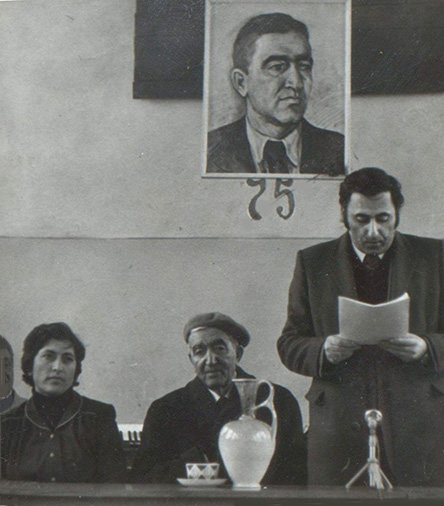
He has written several textbooks for schools, and translated several books from other languages into Kurdish; he has published several books. On the other hand, he played a major role in the Union of Kurdish Intellectuals, the Union of Kurdish Writers, the Academy of Kurdish Studies, newspapers, and language commissions.
Haji Jndi, the father of Kurdish folklore, passed away on May 1, 1990. He left behind a rich scientific legacy. Together with his wife and children, he not only worked for his people abroad in Kurdish but also worked for Kurdish culture and folklore.
In the history of the Kurdish language and folklore, Haji Jndi has recorded his name in golden letters.
